Advertisement
Singular screen legend Gene Hackman celebrated at local cinemas

A couple of months ago, the Coolidge Corner Theatre’s Director of Special Programming Mark Anastasio saw me wearing my “Duck of Death” T-shirt and slipped an off-the-record tip. The shirt is a reference to an insult wielded by Gene Hackman in Clint Eastwood’s “Unforgiven,” so Mark gave me a heads up that the Coolidge was planning on devoting the month of April to a Hackman retrospective, showcasing some of the 95-year-old actor’s most iconic roles. The idea was to pay tribute to this singular screen legend while he was still with us. Unfortunately, we all know how that turned out.
But rather than dwell on the increasingly horrifying details of Hackman and his wife Betsy Arakawa’s deaths in February, let us instead celebrate the remarkable body of work he left behind. The Coolidge’s “Hackman: No Frills, All Fire” runs Tuesdays and Sundays from April 1 through April 29, screening eight straight, undisputed bangers from the Hackman filmography, starting with his explosive breakthrough in William Friedkin’s “The French Connection” and bidding a melancholy farewell with “The Royal Tenenbaums.” Additionally, the Somerville Theatre has programmed two 35mm double features of lesser-known Hackman B-sides, revealing alternate angles of an actor who demonstrated great versatility and range while remaining unmistakably himself.
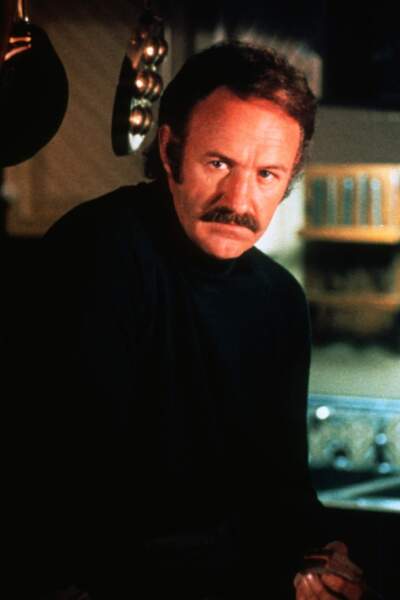
Hackman didn’t go in for the immersive, Method transformations that were popular among his peers. He looked how he looked: an unassuming, regular guy with an arsenal of grins, winks and chilling stares he could shade into seemingly infinite variations. He was born in California and came up in the 1960s New York acting scene, yet Hackman’s affect was always uniquely middle American. There was an ordinariness to his appearance that belied the great depths of emotion roiling beneath. His voice was higher and huskier than you expected, its strategic cracks a key to his often aching vulnerability onscreen. Hackman excelled at portraying gruff men with volcanic tempers, yet few stars seemed so easily wounded. He wasn’t afraid to play weakness, no matter how much his characters may have hated showing it.
The Coolidge series begins, as it must, with “The French Connection” (April 1). Director “Hurricane Billy” Friedkin’s shattering 1971 classic is powered by Hackman’s snarling, piggish policeman Popeye Doyle. The actor famously clashed with the filmmaker over scenes of his character brutalizing suspects and spewing slurs; a caveman chasing sophisticated continental criminals. Yet his anger onscreen is electrifying, the key to a pitiless procedural that’s as bracing today as when it was first released, maybe more so given how timid studio films have become these days. Hackman might have struggled with the role, but it won him his first Oscar and made him an international superstar.
The actor’s personal favorite of his performances was in Francis Ford Coppola’s 1974 “The Conversation” (April 6), playing a paranoid wiretapper who finds himself a pawn in a conspiracy he can’t quite piece together. It’s astounding work, but I think he’s even better in the following year’s “Night Moves” (April 16). Director Arthur Penn’s despairing Florida noir stars Hackman as a cuckolded private detective tracking down a teenage runaway played by Melanie Griffith. In both films, the actor serves as the exhausted avatar of a country disillusioned by Vietnam and Watergate. (Weirdly, both characters are named Harry.) “Night Moves” neatly sums up the existential malaise of 1970s cinema when Harry’s wife asks who’s winning a ballgame on TV and Hackman answers, “Nobody. One side’s just losing slower than the other.”
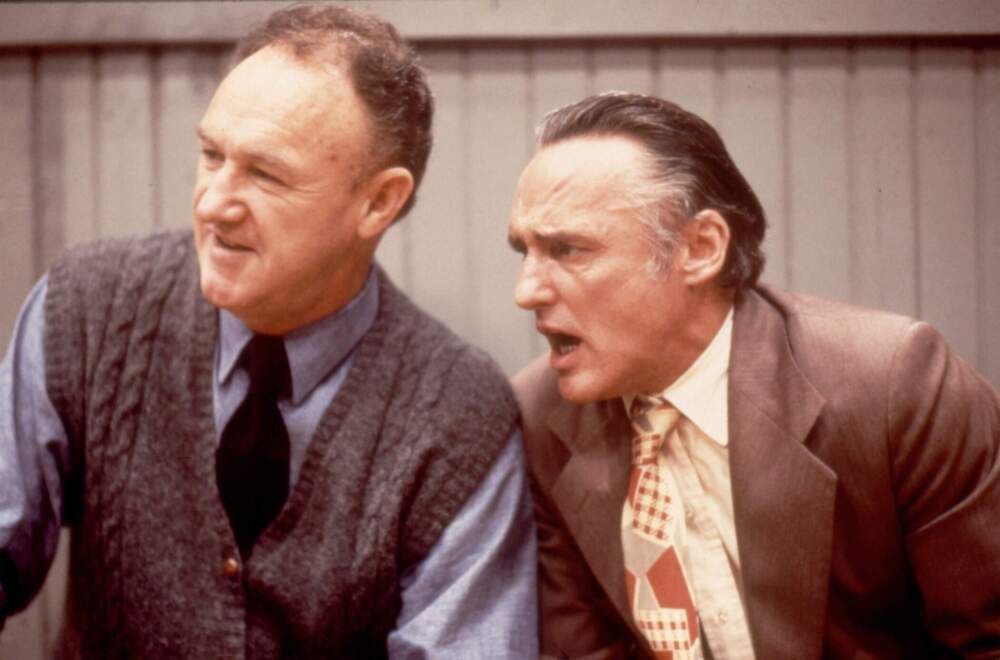
“Mr. Hackman works for money,” his agent once famously told an inquiring independent filmmaker. He wasn’t above paycheck gigs, taking a cool $2 million to lend his legitimacy to the role of Lex Luthor in the 1978 “Superman.” Averaging three or four films a year and not always discerning about the scripts, it was easy to take him for granted when he was working so prolifically. (There’s an entire genre of Sunday afternoon dad thrillers starring Hackman in a windbreaker. I miss them.) But he never phoned those roles in, always bringing an unfussy professionalism and often a lot more. Hackman’s natural magnetism and direct emotional accessibility could imbue even a corny formula programmer like “Hoosiers” (April 8) with a grace and impact far beyond its inspirational sports movie trappings.
While recently rewatching “Unforgiven” (April 22) for the umpteenth time, I joked that the craft of screen acting may very well have peaked during Hackman’s first scene with Richard Harris. I was only half-kidding, as the smiling contempt and strained politesse with which these two old rival gunfighters greet each other in the street is a marvel of insinuation and increasing malevolence. Hackman had a grin that could make your blood run cold, and his ability to downshift from geniality into menace never got a better workout than in Eastwood’s towering masterpiece. Hackman won his second Oscar for the role, another brutal lawman whose good ole boy charm conceals a sadistic rage he can barely control. Watch a wave of disgust wash over his face after he savagely beats the stuffing out of Harris in front of the entire town, the self-loathing of a man who knows all too well of what he is capable.
Advertisement
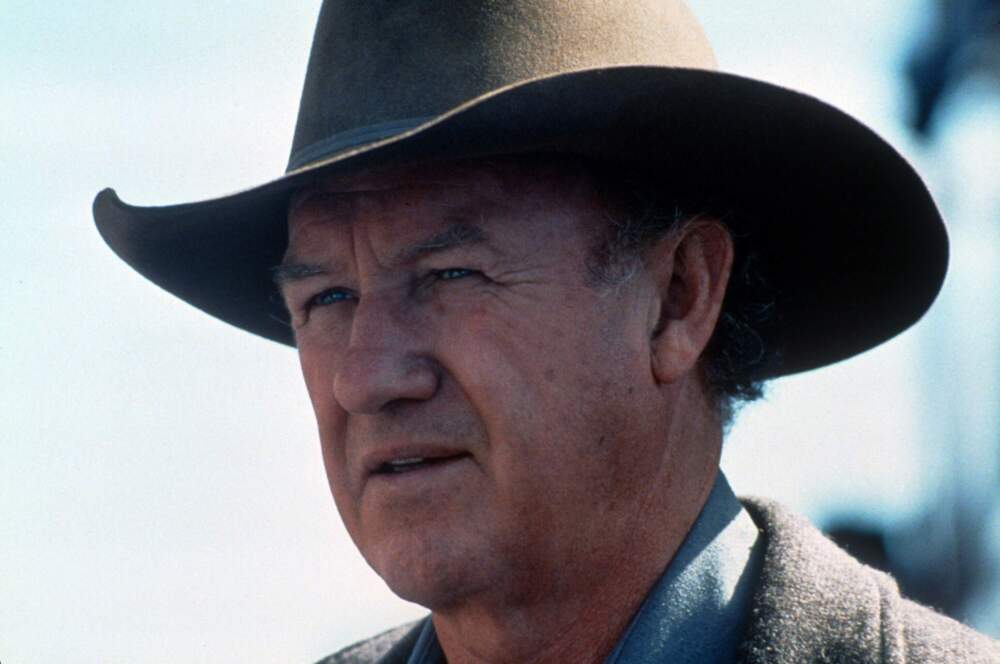
Hackman’s anger was always viscerally compelling, even when put to questionable ends. Alan Parker’s 1988 “Mississippi Burning” (April 15) is a specious crock of revisionist history — it takes a lot of nerve to make a vigilante fantasy about the Civil Rights Movement in which the FBI are the good guys — yet there’s an undeniable thrill in watching Gene Hackman kick the crap out of some of cinema’s most loathsome Klansmen. The actor brings some much needed nuance to a blunt instrument of a movie, his scenes with co-star Frances McDormand showing a softer side of Hackman we didn’t always get a chance to see.
That’s one of the reasons I’m so excited to revisit “Another Woman” (April 9). Woody Allen’s 1988 drama stars the great Gena Rowlands in a stark, Bergman-esque story of an uptight philosophy professor falling apart at the seams. Hackman appears in brief flashbacks and dream sequences as the love of her life who got away, exhibiting a powerful chemistry with Rowlands in a role more tender and intellectual than the characters he typically played. The Somerville has smartly paired it with 1985’s “Twice in a Lifetime,” a rare romantic lead for Hackman as a Seattle steelworker who leaves his wife (Ellen Burstyn) for a local barmaid (Ann-Margret) he met on his 50th birthday. It’s a touching family drama marred by some bizarre outbursts of R-rated, homophobic banter excessive even by ‘80s movie standards.
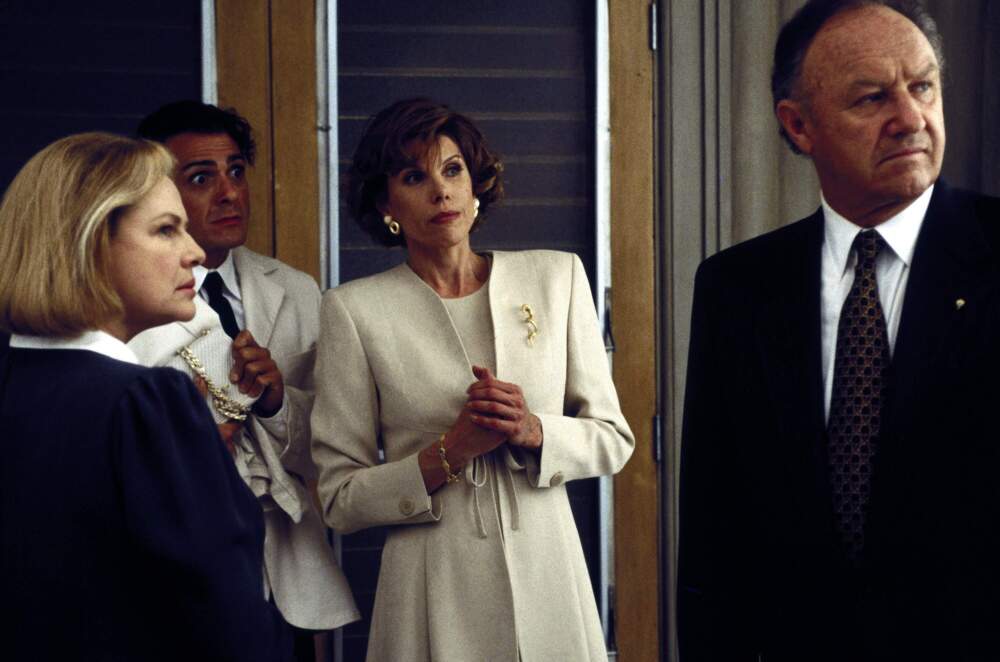
The Somerville’s second double feature begins with Hackman opposite Al Pacino as two temperamentally mismatched hobos making their way across America in director Jerry Schatzberg’s wistful, underseen 1973 road movie “Scarecrow” (April 30). It’s followed by “Absolute Power,” an entertaining hunk of Clinton-bashing hokum from 1997 in which director-star Clint Eastwood plays a cat burglar who accidentally witnesses Hackman’s horny POTUS murdering his mistress. Hackman headlined a lot of these kinds of airport potboilers, though few with such distinguished pedigrees. He and Eastwood worked so well together one wishes they’d found time to do a few more.
Robin Williams and Nathan Lane may have been comedy superstars, but I always thought that Hackman gave the funniest performance in “The Birdcage” (April 27). His blissfully oblivious U.S. senator and founder of the Coalition for Moral Order blunders his way through South Beach’s gay mecca in Mike Nichols and Elaine May’s precision-timed 1996 remake of “La Cage Aux Folles.” It’s a Swiss-watch farce with such massive comic payoffs that when I worked at a multiplex during its original release we could tell which scene it was by how loudly you could hear audiences laughing from the lobby. The deafening roar meant that Hackman had just made his big entrance at the club.
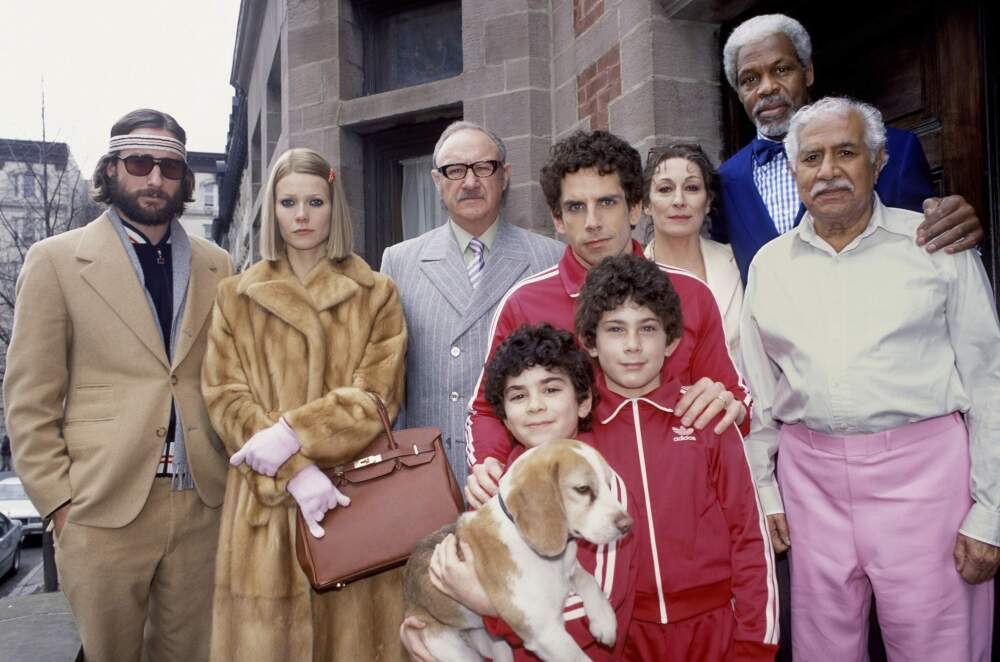
He retired from acting shortly after playing second banana to Ray Romano in the middling 2004 comedy “Welcome to Mooseport,” but 2001’s “The Royal Tenenbaums” (April 29) remains a far more fitting swan song. Director Wes Anderson wrote the role of the petulant, emotionally withholding patriarch to a family of eccentric geniuses specifically for Hackman, tailoring the part to his crack comic timing and roughhousing charisma. Indeed, it’s impossible to imagine any other actor who could console two grieving children with the line, “I’m sorry for your loss. Your mother was a terribly attractive woman.”
As an incorrigible old coot faking a cancer diagnosis to get back into his estranged family’s good graces, Hackman disrupts the director’s patented dollhouse aesthetic, refusing to fall into the slightly narcotized monotone with which the other actors recite Anderson’s hyper-specific dialogue. It was a contentious shoot, but productively so. Hackman brings a rambunctious, livewire energy to “Tenenbaums” that’s missing from Anderson’s more stylistically unified later efforts. He was irascible. And irreplaceable.
“Hackman: No Frills, All Fire” runs at the Coolidge Corner Theatre from Tuesday, April 1 through Tuesday, April 29. The Somerville Theatre’s “Honoring Gene Hackman” double features run on Wednesday, April 9 and Wednesday, April 30.
